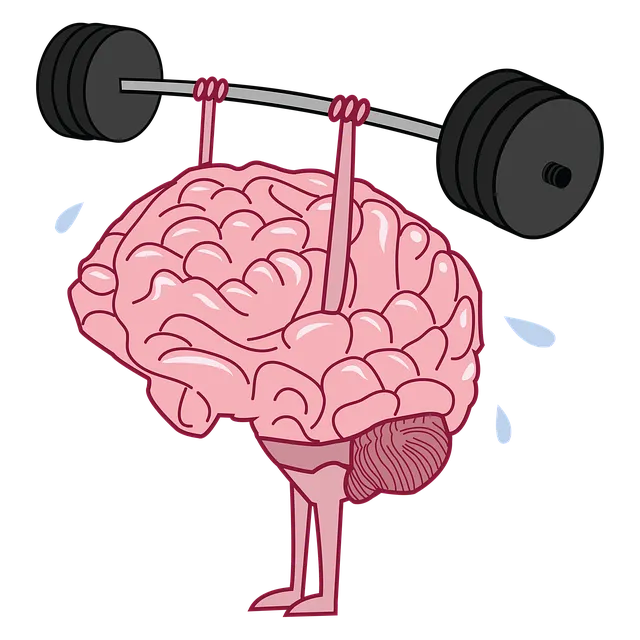In today's fast-paced world, stress, anxiety, and mood disorders are on the rise, leading to a growing demand for mental healthcare services like those offered by the Centennial Kaiser Permanente (CKP) mental health department. Technology, particularly mobile applications, is recognized as a game-changer in making mental healthcare more accessible. Effective mental wellness apps provide personalized tools, such as mood tracking and mindfulness exercises, to support emotional regulation and burnout prevention. Developed through research with institutions like CKP and market analysis, these apps cater to diverse needs, offering engaging content and intuitive interfaces. The CKP mental health department, a leader in innovation, offers comprehensive strategies including therapy sessions and workshops, empowering individuals with coping mechanisms for better mood management.
In today’s fast-paced world, mental wellness app development has emerged as a crucial solution to address growing concerns about mental health. With over 70% of adults globally experiencing stress or anxiety, and nearly one in five suffering from a mental health disorder, digital interventions are more essential than ever. This article explores the rising demand for mental wellness apps, delves into key features, outlines the development process, and presents a case study on the successful impact of Centennial Kaiser Permanente’s mental health department, demonstrating its commitment to innovative care through technology with over 10 million app downloads.
- Understanding the Growing Need for Mental Wellness Apps
- Key Features and Functionality of Effective Mental Health Apps
- Development Process: From Concept to Launch
- Centennial Kaiser Permanente's Approach and Impact: A Case Study
Understanding the Growing Need for Mental Wellness Apps

In today’s fast-paced world, mental wellness has emerged as a paramount concern among individuals across various demographics. The Centennial Kaiser Permanente mental health department numbers reflect a significant rise in demand for accessible and affordable psychological support services. This shift is not merely a trend but a necessary response to the increasing stress, anxiety, and mood disorders prevalent in society. As such, there’s a growing recognition of the potential that technology, specifically mobile applications, holds in addressing these challenges.
Mental wellness apps offer a convenient, discrete, and personalized approach to mental health management. They cater to diverse user needs, from providing coping mechanisms and mindfulness exercises through Mental Wellness Coaching Programs Development to hosting insightful Mental Wellness Podcast Series Production. By empowering users with tools for mood management, these applications are not just trendsetters but game-changers in the realm of mental healthcare accessibility.
Key Features and Functionality of Effective Mental Health Apps

Effective mental health apps are designed to support users’ well-being and provide accessible tools for managing their mental health. Key features include personalized dashboards that allow users to track their mood, stress levels, and sleep patterns over time. Integration of daily check-ins, mindfulness exercises, and meditation sessions helps users cultivate present-moment awareness and emotional regulation skills, which are crucial in burnout prevention.
These apps often incorporate evidence-based techniques like cognitive behavioral therapy (CBT) and conflict resolution strategies to help users identify and change negative thought patterns. Some apps also offer communities or forums where users can connect with others facing similar challenges, fostering a sense of belonging and support. The Centennial Kaiser Permanente mental health department number can serve as a valuable resource for individuals seeking professional guidance alongside app-based solutions, ensuring comprehensive care for their mental wellness.
Development Process: From Concept to Launch

The development process for a mental wellness app begins with a deep understanding of user needs and the latest research in the field, especially when collaborating with institutions like the Centennial Kaiser Permanente mental health department. This stage involves extensive market research, competitor analysis, and defining key features based on recognized therapeutic practices. The concept is then refined into a detailed design, focusing on intuitive user interfaces and engaging content delivery.
As development progresses, the app’s functionality is meticulously coded, tested, and iterated upon. Incorporating features such as emotional regulation tools, self-awareness exercises, and mindfulness meditation sessions, these elements are tailored to cater to diverse mental health needs. Regular user feedback loops ensure the app remains aligned with its intended purpose, resulting in a high-quality product that enhances users’ mental wellness journeys.
Centennial Kaiser Permanente's Approach and Impact: A Case Study

Centennial Kaiser Permanente has been at the forefront of mental wellness innovation with its dedicated mental health department, addressing a growing need in today’s fast-paced world. This healthcare organization recognizes that stress management and mood regulation are essential aspects of overall well-being, leading them to develop comprehensive strategies that cater to diverse patient needs. Their approach involves not only providing individual therapy sessions but also organizing Stress Management Workshops, fostering a supportive community environment.
Through these workshops, Kaiser Permanente aims to enhance Mental Health Awareness, empowering individuals with coping mechanisms and tools for better mood management. The case study of their mental health department’s success highlights the organization’s commitment to revolutionizing access to care, ensuring that people from all walks of life can navigate their mental health journeys with guidance and support.
The development of mental wellness apps has become a vital tool in addressing the growing global need for accessible, personalized mental health support. As demonstrated by the success of Centennial Kaiser Permanente’s mental health department, innovative digital solutions can significantly impact and improve patient outcomes. By focusing on key features such as customizable therapy plans, mindfulness exercises, and secure communication channels, these apps offer discrete and convenient ways to manage mental health. The development process outlined in this article provides a roadmap for creating effective apps that cater to diverse user needs. Embracing this digital trend can revolutionize access to mental health resources, benefiting individuals seeking support from the comfort of their own spaces.






